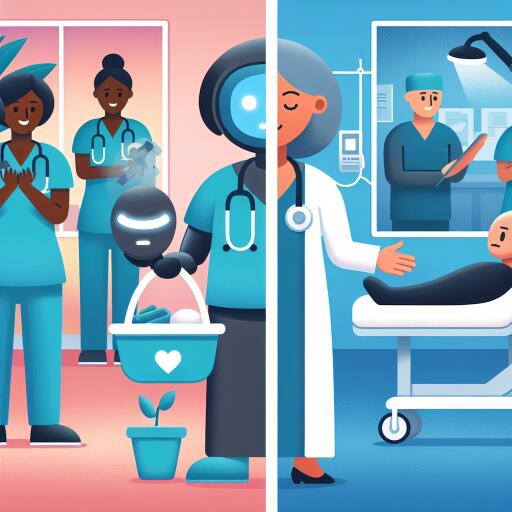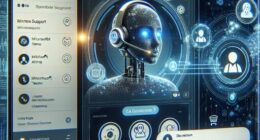AI in Healthcare: Friend or Foe?
The evolution of Artificial Intelligence (AI) technologies has generated both excitement and concern across the healthcare industry. With AI’s ability to analyze vast datasets, recognize complex patterns, and support decision-making, questions arise about its impact on medical professionals and the traditional doctor-patient relationship.
As AI technology progresses, its capabilities extend into realms once exclusively occupied by humans. This advancement has led to unease among some healthcare professionals, who worry about being supplanted by machines. Let’s delve into the challenges and opportunities that AI presents in healthcare, unpacking the fears and emphasizing the collaborative potential of AI technologies.
The Fear of Obsolescence
One significant anxiety within the medical community is the prospect of AI rendering doctors obsolete. With AI demonstrating proficiency in tasks like medical image analysis and diagnostics, concerns arise about machines outstripping human physicians in accuracy and efficiency. For example, AI’s ability to identify cancerous lesions with high accuracy showcases this potential.
However, it is crucial to recognize that AI aims to augment, not replace, human doctors. AI excels at data processing but lacks the empathy, critical thinking, and holistic approach essential for patient care. Thus, despite its advancements, AI is better seen as an assistant rather than a replacement for healthcare practitioners.
The Erosion of Trust
Another worry is that integrating AI into healthcare could erode the trust underpinning the doctor-patient relationship. The opacity of AI decision-making could make patients question their doctor’s expertise or reduce their trust in medical advice. Addressing these concerns requires highlighting that AI serves as a support tool, enhancing rather than dictating healthcare decisions.
The Ethical and Legal Implications
AI’s role in healthcare also raises ethical and legal considerations, from accountability for AI-driven decisions to ensuring data privacy and tackling algorithmic bias. Healthcare organizations, policymakers, and AI developers must collaborate to create ethical guidelines and regulatory frameworks that address these challenges while fostering transparency and trust.
Education and Collaboration
Educating healthcare professionals about AI’s potential and limitations is crucial for mitigating fears and encouraging a collaborative approach to healthcare delivery. Training programs and partnerships between doctors, AI developers, and healthcare institutions can lead to AI solutions that are ethically sound, patient-centered, and beneficial to medical practice.
Embracing AI’s Potential
Despite the expressed concerns, the potential benefits of AI in healthcare are immense. From enhancing disease detection to improving treatment efficacy and patient outcomes, AI can significantly impact healthcare delivery. Moreover, AI can reduce the burden on healthcare professionals, allowing more focus on patient interaction and care aspects that require a human touch.
The successful integration of AI in healthcare hinges on a balanced approach that addresses ethical concerns, fosters trust, and emphasizes patient and practitioner well-being. By viewing AI as a tool for collaboration rather than competition, the healthcare industry can utilize AI to its full potential, enhancing patient care and enabling healthcare professionals to concentrate on what they do best: delivering compassionate, nuanced care.
In conclusion, as we navigate this new era of technological innovation, the path forward involves not choosing between AI and human doctors but recognizing the unique strengths each brings to healthcare. Together, they form a powerful alliance for the future of medical care.










